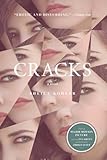Sex
What to Tell Our Children About Sex?
How much information do children need about sexuality?
Posted October 6, 2014
It is startling to read the case of “Little Hans,” Freud’s famous analysis of a child of three to five years old, and see what Hans’s parents, both adherents to Freud’s new psychoanalytic ideas, and “modern” parents who had supposedly promised to bring up their little boy without any undue coercion, tell him about sex. The beautiful mother ( one of Freud’s patients herself) , when she sees the little boy touching his “widdler,” tells him she will have to call in the doctor to cut it off. Both the parents explain, when a little sister arrives on the scene, that a stork has brought the baby, though the child, who was in reality Herbert Graf, can hear his mother groaning in labor( the baby is born at home) and when he is taken into the room to greet his mother and the new baby, he sees basins of blood around the room.
These “modern” parents, this is admittedly 1907, who speak freely with little Hans about his love for his mother, his widdler, and his antagonism for his father which Freud explains is at the root of his horse phobia, do not seem to understand that these different perceptions of reality must surely be very confusing to the little boy.
Herbert Graf, such an endearing and intelligent little boy, seems to have survived all of this fairly well. He defends himself in a most humorous way. His father tells him “ Do you know, if you don’t touch your widdler any more, the silly nonsense will get better.” Referring to the horse phobia.
Hans replies, “But I don’t touch my widdler any more.”
The father says, “But you want to.”
Hans, “Maybe but wanting to isn’t the same thing as doing.”
Hopefully today no one is threatening his/her child with castration, though one can never be too sure.
My husband, who is a psychiatrist, tells the story of taking his little boy ( this was forty years ago) to Italy where he was making a noise and causing a disturbance in a restaurant. The waiter came up to the boy and said to my husband’s horror, “If you go on making a noise like that I’ll have the policeman come and cut off your widdler.”
Obviously, these sorts of warnings are not helpful to children, or even the one little Hans’s father uses to get him to obey, “The policeman will come and put you into jail.”
It seems to me it is important not to confuse the child with lies that he/she can easily detect and which might give a child a sense of betrayal. “I’m going away and I’ll never come back,” said in a moment of anger, is obviously not helpful .
On the other hand, children are sometimes not interested or ready for information the adult may think they need to give. I remember as an earnest mother, leaving a book on a girl’s sexuality on my adolescent daughter’s bedside table, thinking she was old enough to require information of that kind. When I asked her what she thought of the book and the information, she looked at me blankly and said she hadn’t read it, it looked boring to her. I had to laugh.
Sheila Kohler is the author of thirteen books amongst them "Cracks" "Becoming Jane Eyre" and "Dreaming for Freud."
 Cracksby Sheila KohlerOther Pressbuy now
Cracksby Sheila KohlerOther Pressbuy now Becoming Jane Eyre: A Novel (Penguin Original)by Sheila KohlerPenguin Booksbuy now
Becoming Jane Eyre: A Novel (Penguin Original)by Sheila KohlerPenguin Booksbuy now


